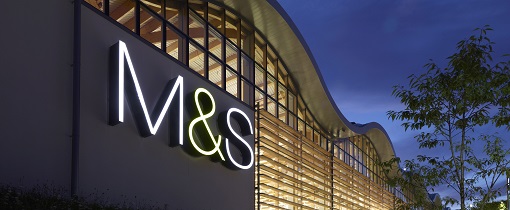UK footfall decreased by 42.1 per cent in July, compared to a decline of 62.6 per cent in June, according to the latest British Retail Consortium (BRC) and ShopperTrak figures.
Footfall on High Streets declined by 47.5 per cent year-on-year, which is an improvement on June’s fall of 64.5 per cent. The reopening of pubs and restaurants did not have a significant impact on retail footfall over the course of the month, according to the analysis.
Retail parks saw footfall decrease by 22.4 per cent year-on-year, which is an improvement on June’s drop of 33.8 per cent. Wider open spaces, a higher proportion of supermarkets and larger stores quicker to reopen helped to shelter retail parks from a steeper decline.
Meanwhile, shopping centre footfall declined by 48.1 per cent year-on-year in July, improving on the 68.3 decline in June. They were the most negatively affected location, partly due to enclosed spaces making social distancing more of a challenge.
Northern Ireland saw the shallowest shopping centre footfall decline of all regions, down 23.1 per cent. Wales and Scotland saw higher rates of decline than the UK average, falling 53.3 per cent and 54.4 per cent respectively.
BRC chief executive Helen Dickinson stated that with retail footfall recovering slower than in many other European countries, much will depend how fast consumer demand returns.
"Retailers have put in place a variety of measures to keep shoppers and staff safe, from regular cleaning and hand sanitiser, to one-way systems and perspex screens at tills.
"We now need government to play their part by providing clear plans for schools, transport, and office working, all of which impact the way we shop," she continued, adding: "The safety of the public is a top priority and we believe clear communication will help build public confidence and help bolster local high streets and shopping centres during the summer months."
Andy Sumpter, EMEA retail consultant at ShopperTrak, noted that data from the US has shown that states that mandated face coverings first benefited from improved footfall recoveries, "so we’ll be looking for the same here too in the coming weeks".
Separately, the BRC and Opinium have been tracking consumer behaviours and their sentiment towards Coronavirus on a weekly basis, with the latest data between 31 July and 4 August showing that 24 per cent of respondents expect to spend less than usual over the next month, compared with 11 per cent who will spend more.
When asked about specific products, the most common categories for reduced spending over the next month were fashion/clothing (37 per cent), small electronics (28 per cent), large electronics (27 per cent) and health and beauty (27 per cent).
The research showed that 62 per cent of respondents feel comfortable about buying groceries in store, up from 56 per cent the week before, with the mandatory requirement for masks in shops helping improve these figures.
In terms of shopping visits, 14 per cent intended to browse, up from 12 per cent at the start of July, although 58 per cent intended to visit shops only if necessary, up from 52 per cent at the start of July.
Those who said they would avoid visiting shops if possible fell to 23 per cent, down from 32 per cent at the start of July. Younger (18 to 34 year-old) respondents showed the most willingness to visit shops, with 20 per cent saying they intended to browse, compared with 19 per cent who intended to avoid going to shops if possible.
And as for safety, 51 per cent of respondents felt that retailers were doing enough to protect the public from Coronavirus, with only 13 per cent disagreeing.
Latest News
-
Ocado to cut 1,000 jobs in £150m overhaul
-
Asda to rebrand 10 Asda Living stores into Georg
-
Aldi raises wages to become 'highest' paying supermarket
-
On opens robot-run South Korea factory to speed shoe production
-
Ikea pilots in‑store Decathlon as first UK third‑party ‘blue box’ scheme
-
Lidl raises a further £481,000 worth of micro donations for Childline
Beyond Channels: Redefining retail with Unified Commerce
This Retail Systems fireside chat with Nikki Baird, Vice President, Strategy & Product at Aptos will explore how unified commerce strategies enable retailers to tear down these barriers and unlock new levels of operational agility and customer satisfaction.
The future of self-checkout: Building a system that works for consumers and retailers
In this webinar, industry leaders discussed what the future of self-checkout looks like and how retailers can make the technology work for everyone.
© 2024 Perspective Publishing Privacy & Cookies










Recent Stories